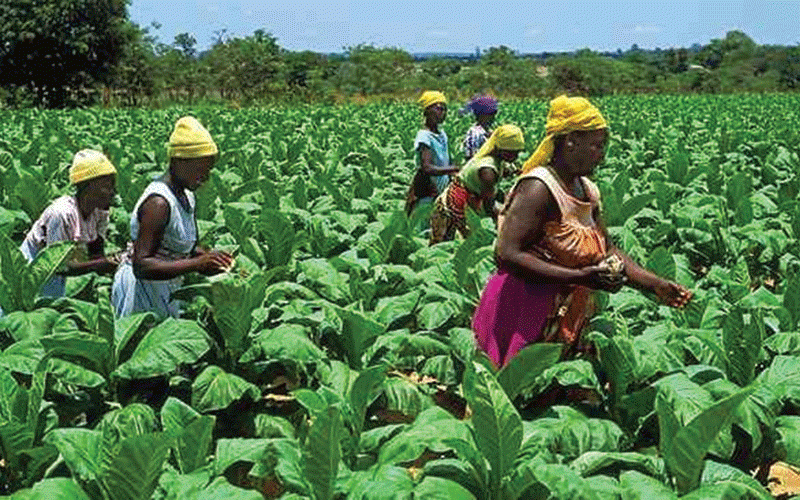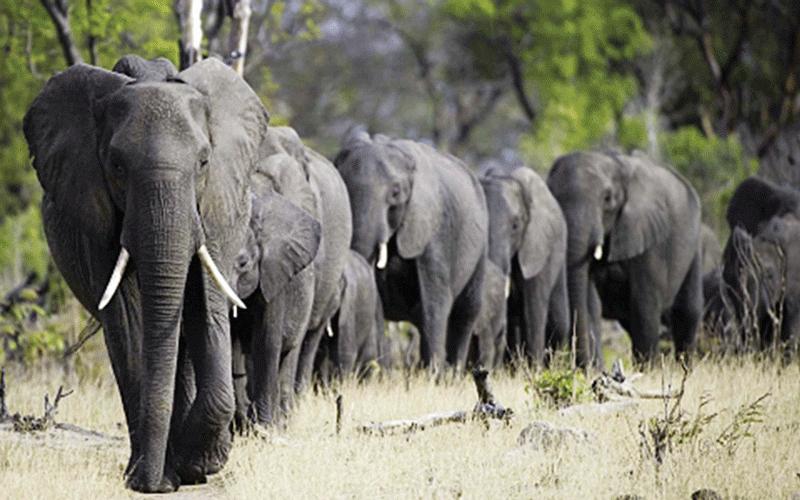
Kutsaga Research Station is at the forefront of promoting sustainable tobacco production practices as the country's agricultural sector grapples with the challenges of climate change.
The organisation's chairperson Aaron Denenga revealed that Kutsaga was driving efforts to boost agricultural productivity by developing and adopting more drought-resistant tobacco varieties.
The golden leaf is country's second-largest export earner after gold and Kutsaga's commitment to innovation is crucial, particularly in the face of increasingly unpredictable weather patterns.
Denenga pointed to the station's remarkable progress in improving tobacco yields, from a modest 600 kilogrammes per hectare (kg/ha) in the early days to an impressive 4 500 kg/ha with the latest hybrid varieties, K RK66 and K RK76.
“From the wild roots of nature, Kutsaga emerged, transforming into KE1, the first tobacco variety resilient against white moulds, showcasing the power of innovation in agriculture and our commitment to a sustainable future,” he told NewsDay Business, noting that Kutsaga has been focusing on developing climate-smart, drought-adaptive varieties since 1950.
He said Kutsaga’s journey of transformation was a testament to resilience and ingenuity, evolving from KE1 to KMT10, conquering tobacco mosaic virus, adapting K30R to thrive in heavy soils, and developing KRK1 to combat root-knot nematodes.
“With KRK26’s rapid ripening, KRK28’s high yield, and the climate-smart, drought-adaptive T79, we are not just cultivating tobacco; we are nurturing a sustainable future,” Denenga said.
He also highlighted the innovative float tray system for seedling production that they adopted, which addressed pressing challenges in agriculture while promoting sustainable growth.
- COP26 a washout? Don’t lose hope – here’s why
- Out & about: Bright sheds light on Vic Falls Carnival
- COP26 a washout? Don’t lose hope – here’s why
- Out & about: Bright sheds light on Vic Falls Carnival
Keep Reading
NewsDay Business understands that Kutsaga is also researching eco-friendly curing fuels like liquified petroleum gas, biogas and solar energy. Kutsaga seed production head Christina Chisango emphasised the importance of producing high-quality tobacco seeds under the Kutsaga Seed Association, aiming to fulfill national and regional requirements and contribute significantly to the Tobacco Value Chain Transformation Plan.
“We contribute to the Tobacco Value Chain Transformation Plan, which seeks to develop the tobacco industry so that we produce 300 million kilogrammes of pure tobacco leaf and transform the industry into a US$5 billion sector by 2025,” she said.
“We produce seeds for all the tobacco varieties developed by Kutsaga in various areas across Zimbabwe.”
She noted that these seeds were produced in regions such as Karoi, Harare, Beatrice and Marondera, where Kutsaga has a network of growers.
“We are accredited by the National Seed Authority of Zimbabwe. Officers from this institute inspect the crops and monitor our practices. When we finalise our seasonal programme to register our crops, seed services come to inspect the seedbeds three weeks prior to planting,” Chisango said.
“They check that the seedlings are healthy and vigorous, as well as ensuring compliance with standards such as isolation from commercial tobacco and other seedlings.”
After harvesting, the seeds undergo a thorough post-harvest analysis, including drying, processing and testing for purity and germination, ensuring that only the highest quality seeds reach growers.










